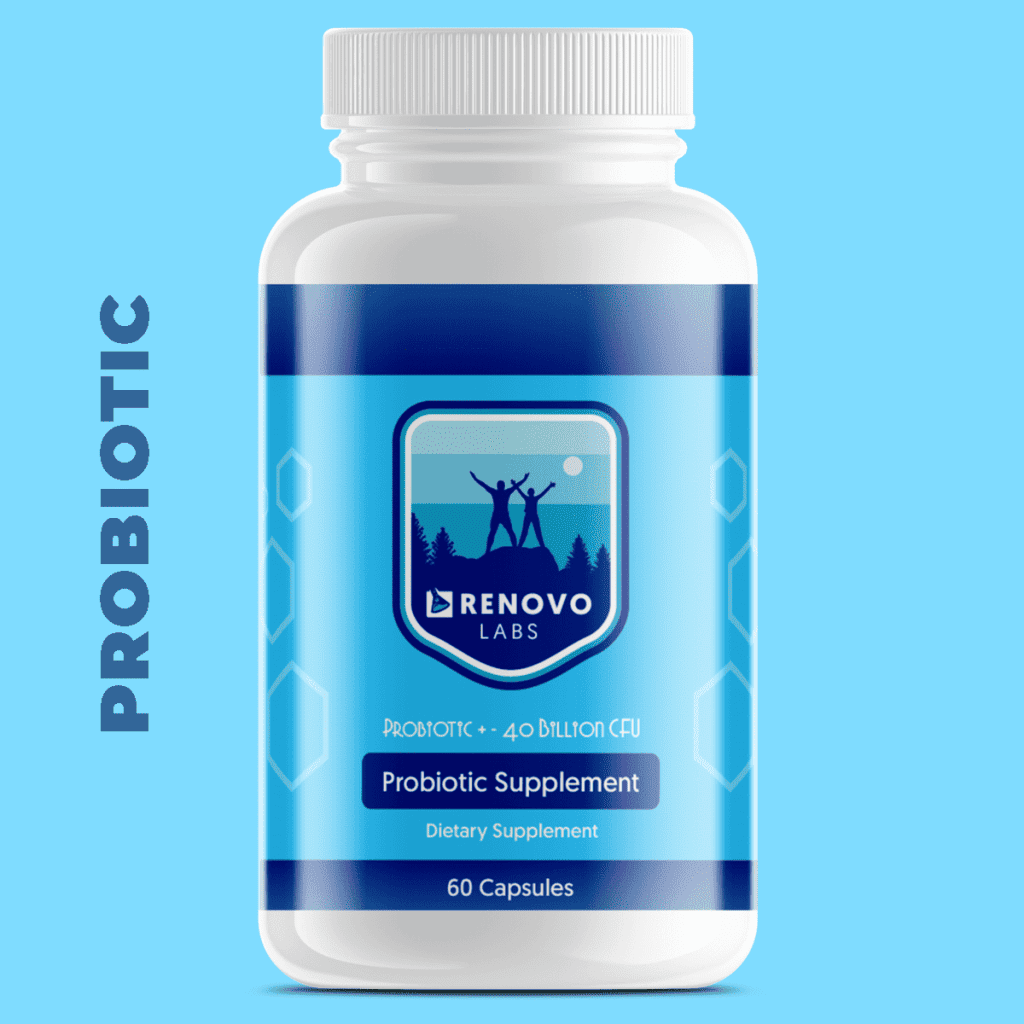Infertility is a growing concern in the United States, with one in every eight couples facing difficulty in conceiving a child. While there are many potential causes of infertility, recent research has shown that gut health may play a significant role in fertility.
Maintaining good gut health not only improves overall health but can also potentially improve fertility. In this article, we’ll explore the connection between gut health and fertility and discuss some tips for maintaining a healthy gut.
The Prevalence of Infertility
According to the Centers for Disease Control and Prevention (CDC), approximately 10% of women in the United States have difficulty getting or staying pregnant. Infertility can cause stress, anxiety, and depression, and may even lead to relationship problems. It can also impact men, with male infertility accounting for around 30 to 40% of infertility cases.
Infertility can have a variety of causes, including age, hormonal imbalances, and genetics. Lifestyle factors such as smoking, alcohol consumption, and poor diet can also contribute to infertility. However, recent studies have suggested that gut health may also play a role in fertility.

The Connection Between Gut Health and Fertility
A 2021 study published in Gut Microbes examined the impact of gut health on the reproductive system.
It found that your gut health is more closely tied to your fertility than you might realize. The myriad of microorganisms residing in your digestive tract not only plays a significant role in your digestive health but also acts as a crucial player in your reproductive and metabolic endocrine systems. This complex community of bacteria, known as the gut microbiota, interacts with essential hormones like estrogen, androgens, and insulin, which are pivotal throughout your reproductive life.
Imbalances in your gut microbiota can lead to a variety of reproductive health issues, including:
- Complications during pregnancy
- Adverse pregnancy outcomes
- Polycystic ovary syndrome (PCOS)
- Endometriosis
- Fertility challenges
For instance, the interaction between your gut microbiota and estrogens is a delicate dance that maintains hormonal balance essential for your reproductive health. An imbalance could lead to conditions like PCOS and endometriosis, affecting your fertility.
Your gut microbiota’s relationship with insulin highlights the intricate link between your diet, gut health, and reproductive system. Insulin resistance, a condition often influenced by gut health, contributes to androgen excess in conditions like PCOS, further complicating fertility issues.
Nurturing your gut health could be a key strategy in enhancing your fertility and overall reproductive well-being. This includes maintaining a balanced diet rich in fiber, possibly incorporating probiotics, and managing stress, as these factors collectively influence the diversity and balance of your gut microbiota. In doing so, you’re supporting a healthier reproductive endocrine system, potentially improving your fertility and paving the way for better reproductive outcomes.
Tips for Maintaining a Healthy Gut
Maintaining a healthy gut not only improves overall health but can also potentially improve fertility. Here are some tips to keep your gut healthy:
Eat a diet rich in fiber, fruits, and vegetables
A diet high in fiber and plant-based foods can help promote a healthy gut microbiome. Aim for at least 25 grams of fiber per day and eat a variety of fruits and vegetables. One study found that consuming a diet rich in fiber and vegetables positively affected the gut microbiome composition in women with polycystic ovary syndrome (PCOS) and improved fertility.
Avoid processed and sugary foods
Processed and sugary foods can disrupt the balance of bacteria in your gut and contribute to inflammation, which can negatively impact fertility. Limit your intake of these foods and opt for whole, nutrient-dense foods instead. A diet high in sugar and processed food can increase insulin resistance, leading to hormonal imbalances that can affect fertility.
Stay hydrated
Drinking plenty of water can help keep your digestive system running smoothly and support a healthy gut. Dehydration can lead to constipation and other digestive issues that can negatively affect gut health.
Get enough sleep
Sleep is important for overall health, and it may also support a healthy gut microbiome. Aim for 7-8 hours of sleep per night. Lack of sleep can cause stress and inflammation in the body, which can negatively affect gut health and fertility.
Manage stress through exercise, meditation, or therapy
Chronic stress can negatively impact gut health, so finding ways to manage stress is important. Exercise, meditation, and therapy are all effective ways to reduce stress. Stress can release cortisol, a hormone that negatively affects the gut microbiome and fertility.
Certain foods may also be beneficial for gut health, including fermented foods like yogurt, kefir, and sauerkraut. These foods contain beneficial bacteria that can help support a healthy gut microbiome. Prebiotic foods like garlic, onions, and asparagus can also feed the healthy bacteria in your gut.
Probiotics for Gut Health
In addition to eating a healthy diet, taking a probiotic supplement may also be beneficial for gut health. Probiotics are live bacteria and yeasts that are good for your health, especially your digestive system. They can help to balance the bacteria in your gut and support overall digestive health.
One probiotic supplement that we recommend is Renovo Labs Probiotic+. This supplement contains a blend of beneficial bacteria, including lactobacilli and bifidobacteria, which have been shown to support gut health and potentially improve fertility. Renovo Labs Probiotic+ is also gluten-free, non-GMO, and made in the USA.
** These statements have not been evaluated by the Food and Drug Administration. This dietary supplement product is not intended to diagnose, treat, cure or prevent any disease **
Practice Healthy Habits and Your Gut Will Repay You
To summarize, maintaining good gut health is crucial for overall health and may also play a significant role in fertility, making it an important topic for those interested in gut health and fertility. If you’re on the run and you don’t have much time for healthy meal prep, consider taking a probiotic supplement like Renovo Labs Probiotic+, which supports your gut health and overall health.
If you’re struggling with infertility, it’s important to talk to your doctor and explore all potential causes and treatments, including the potential role of gut health. Remember, maintaining a healthy gut is not just important for fertility but also for overall health and well-being. By taking care of your gut, you may be able to improve not just your chances of conceiving but also your overall quality of life.





 Excludes DNA Testing
Excludes DNA Testing